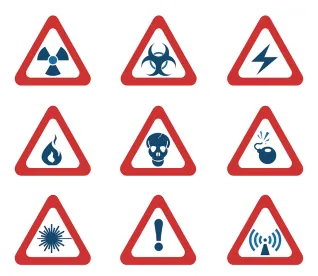In January 2020, New Jersey passed significant amendments to the state’s Millville Dallas Airmotive Plant Job Loss Notification Act (the “NJ WARN Act”) that were to go into effect in July 2020. Due to the COVID-19 pandemic, the effective date was delayed, but on December 19, 2022, the New Jersey legislature passed A-4768, which, when it becomes effective on April 10, 2023, will result in a significant expansion of the NJ WARN Act.
Requirements Under the Amended NJ WARN ACT
The amended NJ WARN Act imposes the following additional and revised requirements in connection with such workforce reductions as terminations of operations (plant closings), mass layoffs, and transfers of operations:
-
The law applies to New Jersey employers with 100 or more employees anywhere (i.e., inside or outside New Jersey), regardless of the employees’ length of service or full- or part-time status.
-
The revised NJ WARN Act covers any “establishment,” which is defined as a single location or group of locations operated by the employer in New Jersey for at least three years.
-
The advance notice requirements of the law are triggered when an employer is going to terminate the employment of 50 or more employees (full-time or part-time) within a 30-day period, even if the number of employees to be terminated constitutes less than 33% of the applicable workforce.
-
Unlike under federal WARN, which addresses employment separations at single employment sites, notice under the NJ WARN Act will be required even if the 50 or more employees to be discharged work at separate worksites within New Jersey, in effect requiring the aggregation of employment terminations occurring anywhere in the state within a 30-day period.
-
Employers must provide 90 days’ advance notice to affected employees, as opposed to the prior 60-day notice requirement.
-
Employers must provide terminated employees with severance pay in the amount of one week of pay for each full year of employment, and there is no cap to this severance requirement. The severance pay must be at a rate equivalent to the higher of (a) the employee’s final level of compensation, or (b) the average regular rate of compensation received during the employee’s last three years of employment. If employees are entitled to severance pay under a separate agreement/plan or under a collective bargaining agreement, employers may offset that severance pay against what is owed under the law, but employees are still entitled to the full amount called for by the law.
-
If employers fail to give 90 days’ advance notice to their employees when required, the employer must provide each affected employee with an additional four weeks of severance pay.
-
Employees cannot waive their right to the severance benefit without permission from the state or a court.
New Jersey employers should be prepared to comply with the amended NJ WARN Act with respect to any plant closings, mass layoffs, and transfers of operations that occur on or after April 10, 2023.




 />i
/>i

